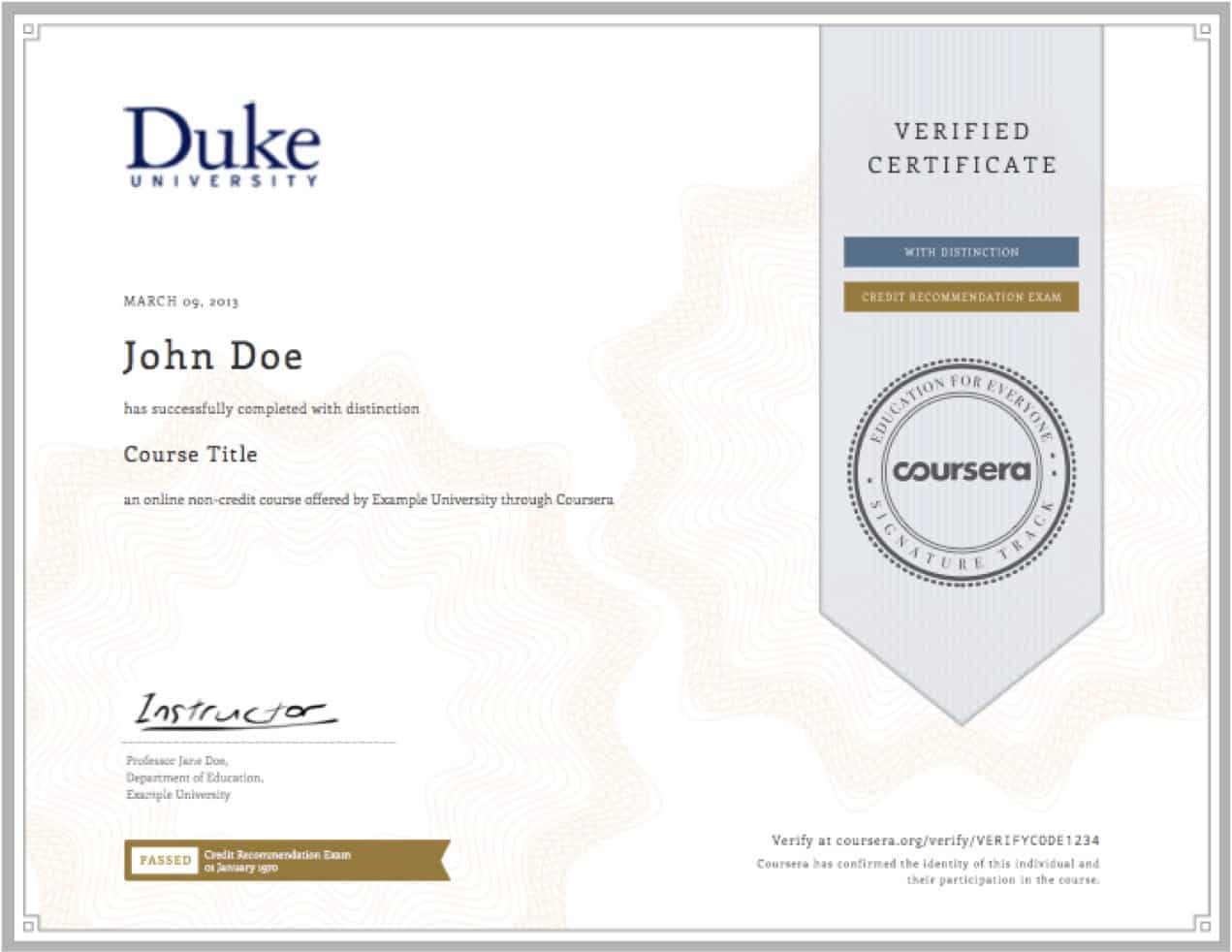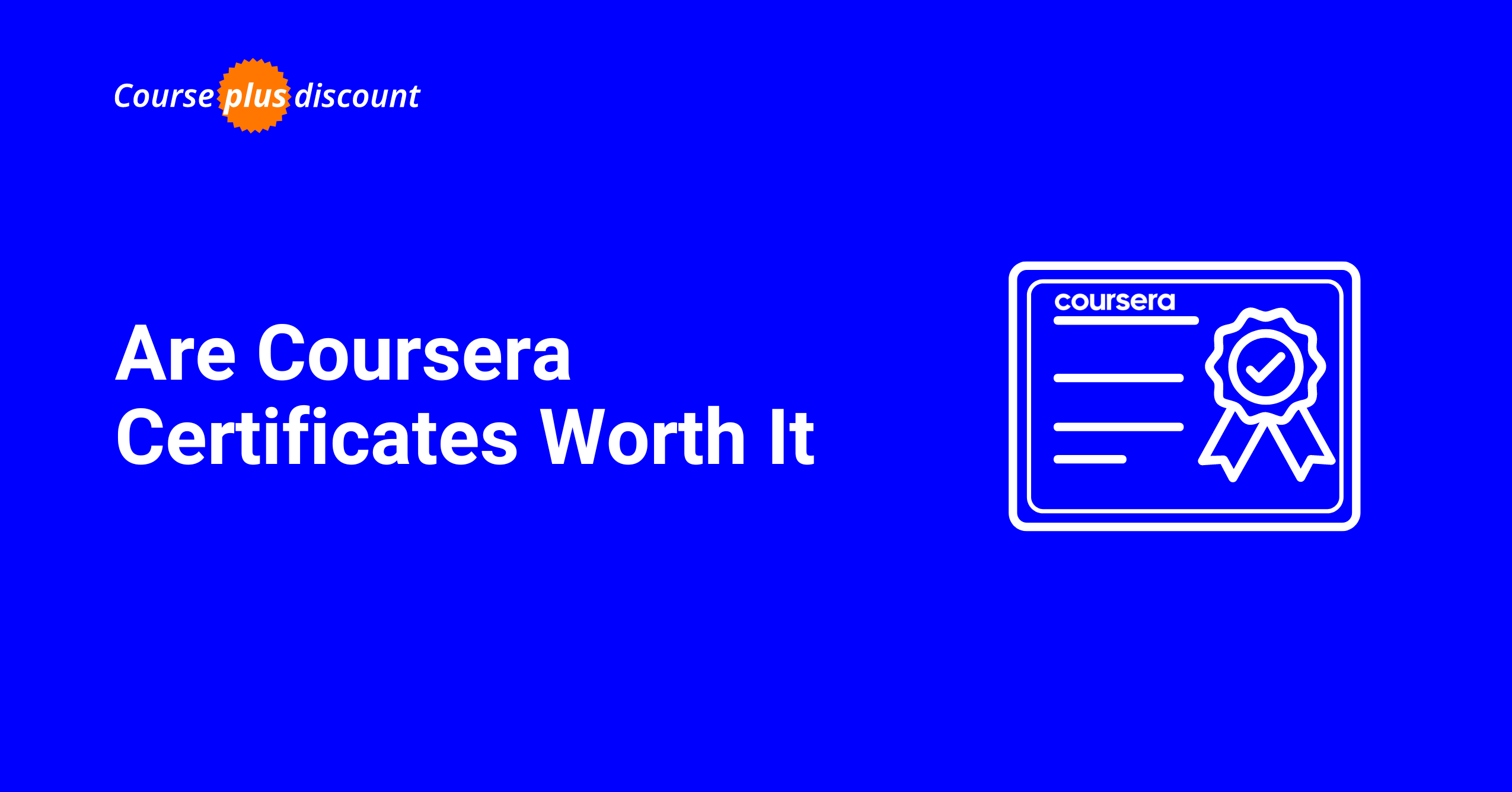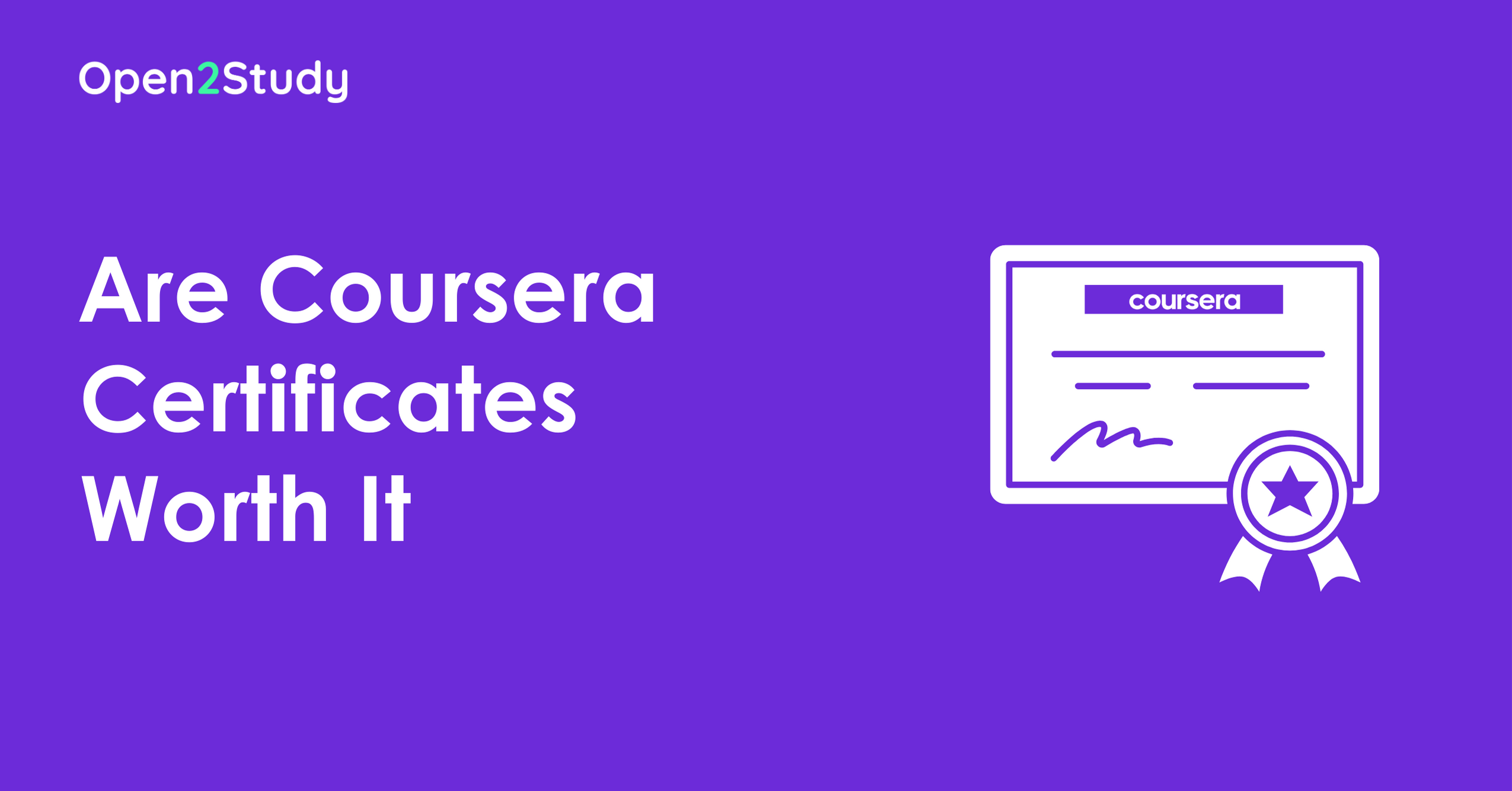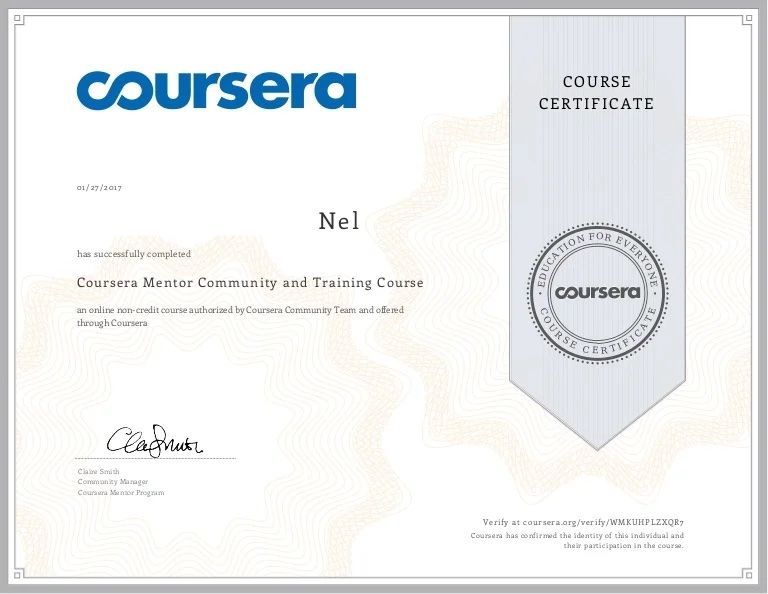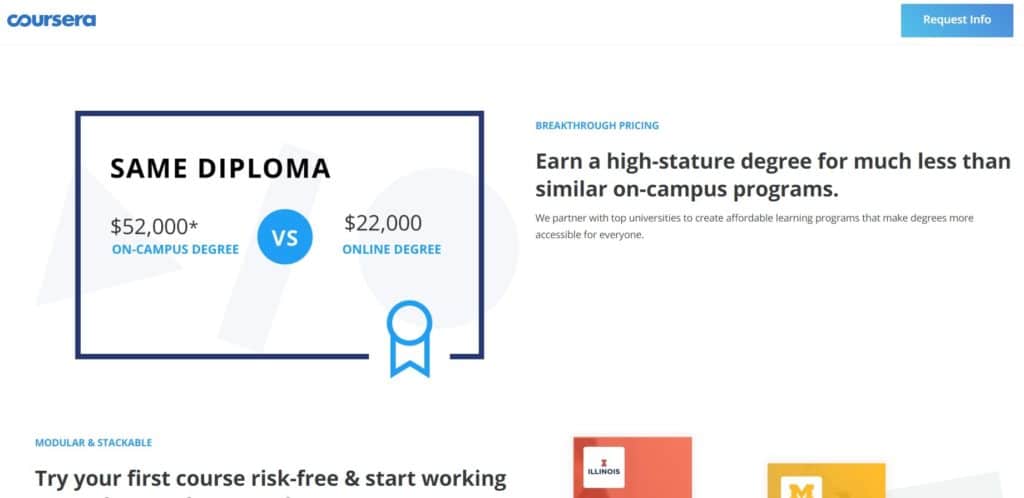Coursera Certificate Price Explained: Is It Really Worth Paying For?
Are you looking to upskill, reskill, or simply learn something new? Coursera, with its vast library of courses from top universities and institutions, might be your answer. But before you dive in, one crucial question often pops up: Is the Coursera certificate price worth it? This article breaks down the cost of Coursera certificates, explores their value proposition, and helps you decide if they align with your learning goals and career aspirations.
Understanding Coursera’s Pricing Structure
Coursera offers a variety of pricing models, so understanding them is key to making an informed decision. Here’s a breakdown:
Free Courses (Audit Mode): Many courses offer a free audit mode. This allows you to access course materials like videos and readings without paying. However, you typically won’t have access to graded assignments, quizzes, or a certificate upon completion.
Individual Course Certificates: For individual courses, you’ll pay a one-time fee. The price varies widely depending on the course, ranging from around $39 to $99 USD or more. This fee grants you access to graded assignments, quizzes, and the certificate upon successful completion.
Specializations: Specializations are a series of related courses bundled together, often leading to a more in-depth understanding of a specific subject. These typically involve a monthly subscription fee, usually between $39 to $79 USD per month. You can complete the specialization at your own pace, paying only for the months you’re actively enrolled.
Professional Certificates: These are designed to help you develop job-ready skills. They also usually have a monthly subscription fee similar to Specializations. However, these often include more hands-on projects and are frequently developed in partnership with industry leaders.
MasterTrack™ Certificates: MasterTrack™ certificates provide a pathway to a master’s degree. They are a more substantial investment than other Coursera offerings, with costs varying depending on the program. They typically offer a condensed version of a full master’s program, offering a cheaper and more accessible way to gain a master’s degree.
Degrees: Coursera also offers full online degree programs in partnership with universities. These are significantly more expensive than other options, mirroring the cost of a traditional degree, and are designed for long-term professional development.
Evaluating the Value: What Do You Get for Your Money?
The value of a Coursera certificate depends heavily on your individual goals and aspirations. Consider these factors:
Knowledge and Skills: Coursera provides access to high-quality educational content from renowned institutions. You’ll gain valuable knowledge and skills in your chosen field.
Credibility and Recognition: Certificates from reputable universities and institutions can enhance your resume and demonstrate your commitment to learning.
Career Advancement: Certificates can help you stand out to employers, especially for in-demand skills.
Portfolio Building: Some courses and Specializations include projects that you can add to your portfolio, showcasing your skills and abilities.
Networking Opportunities: Some programs offer discussion forums or opportunities to connect with fellow learners, potentially expanding your professional network.
Access to Graded Assignments and Feedback: The ability to receive feedback on your work and assess your understanding is a significant benefit of paying for a certificate.
Weighing the Pros and Cons: Is It Worth It for You?
Pros:
- Flexible Learning: Learn at your own pace, on your own schedule.
- High-Quality Content: Access to courses from top universities and institutions.
- Potential for Career Advancement: Certificates can enhance your resume and open doors to new opportunities.
- Skill Development: Acquire in-demand skills.
- Demonstration of Commitment: Shows dedication to learning and self-improvement.
Cons:
- Cost: Certificates can be expensive, especially when considering multiple courses or Specializations.
- Time Commitment: Requires dedication and time to complete courses and assignments.
- Recognition Varies: While some certificates are highly valued, others may carry less weight depending on the field and employer.
- Not a Replacement for a Degree: Certificates are not a substitute for a formal degree.
- No Guarantee of Employment: Obtaining a certificate doesn’t guarantee a job.
Strategies to Maximize Value and Minimize Costs
Here are some tips to make the most of your Coursera investment:
- Consider Auditing First: Before paying, audit the course for free to ensure it meets your expectations and learning style.
- Look for Financial Aid: Coursera offers financial aid for many courses, which can significantly reduce the cost.
- Plan Your Learning Path: Identify your career goals and choose courses that align with your objectives.
- Complete Courses Efficiently: Stay organized and manage your time effectively to avoid paying for extended subscription periods.
- Focus on Practical Application: Apply what you learn in your current role or build a personal project to showcase your skills.
- Compare with Alternatives: Consider other online learning platforms and resources to see if they offer a better fit for your needs and budget.
Conclusion: Making the Right Choice for You
Ultimately, the decision of whether to pay for a Coursera certificate is a personal one. Carefully evaluate your goals, budget, and the value proposition of the specific course or program. If the certificate aligns with your career aspirations, provides valuable skills, and fits within your financial constraints, then it can be a worthwhile investment. However, remember to consider the alternatives and make an informed decision based on your individual circumstances.
FAQs: Addressing Common Questions
Here are some frequently asked questions about Coursera certificates:
1. Do Coursera certificates look good on a resume?
Yes, they can. Certificates from reputable universities and institutions can enhance your resume, especially if the skills learned are relevant to the job you’re seeking. Be sure to include the course name, institution, and completion date.
2. Can I get a refund if I don’t like a Coursera course?
Coursera typically offers a refund within a specific timeframe (usually 14 days) after you enroll in a course or subscription. Check the specific course’s refund policy before you pay.
3. Is a Coursera certificate the same as a degree?
No, a Coursera certificate is not the same as a degree. It’s a credential that demonstrates your completion of a specific course or specialization. A degree typically requires a more comprehensive curriculum and is awarded by a recognized university or college. However, MasterTrack™ and degree programs are available to earn a degree on Coursera.
4. Are Coursera certificates accredited?
The accreditation of a Coursera certificate depends on the institution offering the course. Some courses are offered by accredited universities and institutions, while others are not. Check the course description to see if it is accredited.
5. Do employers recognize Coursera certificates?
Employer recognition of Coursera certificates varies. Many employers are familiar with Coursera and recognize the value of the skills and knowledge gained. However, the recognition can depend on the employer, the industry, and the specific certificate.
